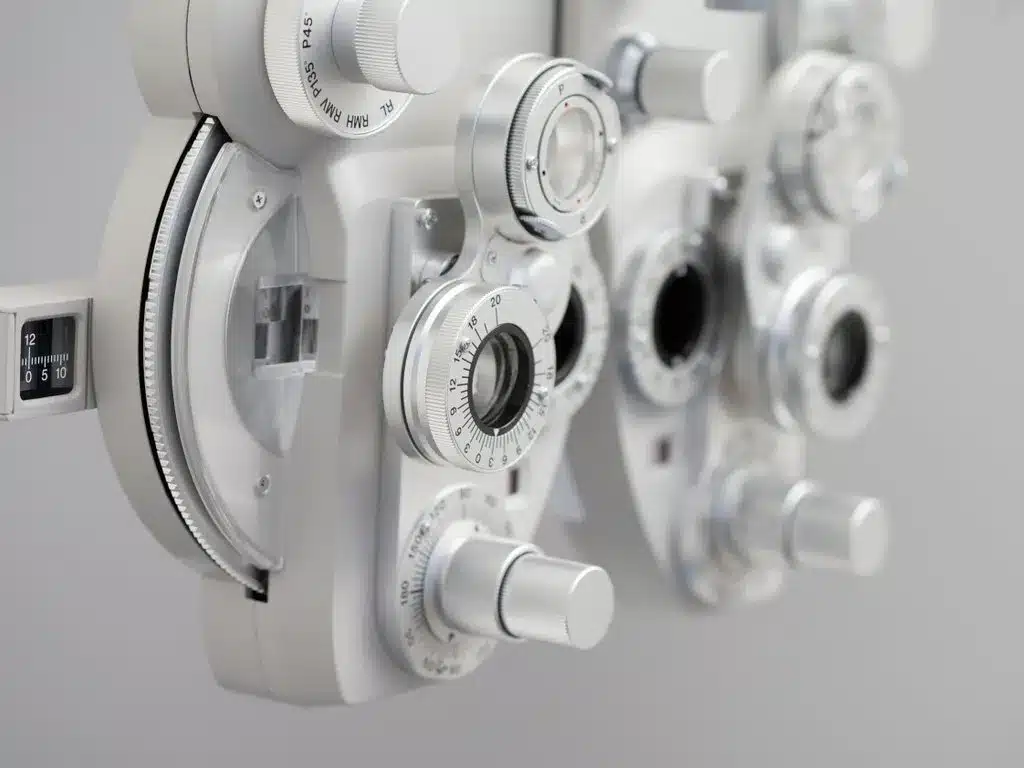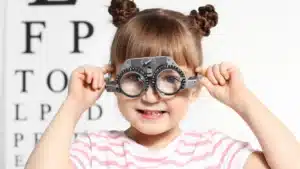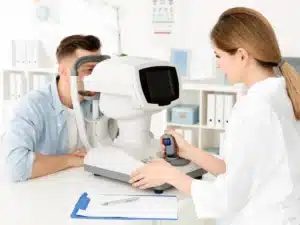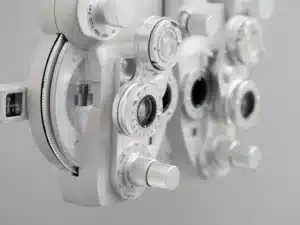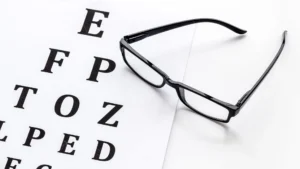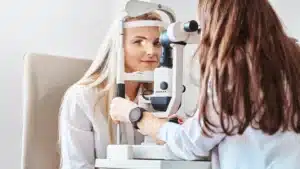The eyes are known for doing some miraculous things, ultimately giving humans the invaluable gift of sight. As light rays enter the eye’s natural lens, they’re refracted into the back of the eye where they’re converted into an electrical signal – which is then sent to the brain for processing.
Although the eyes are one of the most incredible organs in the entire body, they aren’t perfect and everyone is subject to eye health issues at some point in their lifetime. In fact, some eye diseases are a direct result of the natural aging process that we all experience as we grow old.
That’s why eye doctors stress the importance of scheduling a regular eye exam. It plays a critical role in early detection of eye disease, which is essential for quality and timely treatment. Not only that, but it can help detect and raise awareness of other potential health issues.
So, what’s included in an eye exam?
An annual comprehensive eye exam consists of a number of tests, exams, imaging, questions, and observations made by an ophthalmologist – also known as an eye doctor or eye surgeon. They do a thorough inspection and complete analysis of both eyes, largely in search of any potential eye issues.
Here’s a brief overview of some of the different tests you can expect during an eye exam:
- Overview of patient’s medical and eye health history
- Overview of the family’s eye health history
- Visual acuity test nd visual field test with a reading chart
- Measure eye pressure to prevent the development of glaucoma
- Refraction test to detect nearsightedness, farsightedness, and astigmatism
- Keratometry or topography to measure the shape of the cornea
- Preliminary tests to determine visual function
- Pupillary reactions with a light to test function of the eye
- Slit lamp test to detect abnormalities on the eye’s surface
- Dilated eye exam to determine retina and optic nerve health
In the event your eye doctor finds something abnormal in your eye exam health, they’ll start to investigate further until they reach a diagnosis. With a correct diagnosis, your eye doctor can start formulating a treatment plan that’s tailored to meet the needs of each unique individual.
Eye Problems an Eye Exam Can Detect
Routine and frequent eye exams are designed to detect an eye problem in its earliest stage of development. They give your eye doctor an opportunity to monitor your eye health long-term and maintain a running log of any risks or dangers you might experience – so they can help prevent them.
Let’s take a look at some of the most prominent eye problems that your eye doctor will be on the lookout for during a comprehensive or routine eye examination:
- Strabismus (cross-eyed)
- Refractive errors (nearsighted, farsighted, astigmatism)
- Glaucoma (high intraocular eye pressure)
- Optic nerve damage
- Retinal conditions (detached retina, retinal tear, diabetic retinopathy)
- Macular degeneration (reduced central vision)
The need for a regular eye exam only increases as we age. Since a lot of eye problems arise as a result of the natural aging process, it becomes increasingly more important to monitor eye health the older you get. This is essential to preserving and enjoying your vision long-term.
Other Health Problems an Eye Exam Detects
In addition to eye issues, regular eye exams can detect a wide range of other health problems throughout the rest of the mind and body. Since the entire body is connected and the organs are constantly working together, one problem somewhere often means another problem elsewhere.
Let’s take a look at some of the most common health problems that your ophthalmologist can detect during an eye exam:
- High blood pressure, high cholesterol levels, and diabetes
- Pupillary reaction conditions (Horner syndrome, cluster headache, brainstem lesions, anisocoria, etc.)
- Brain tumors, aneurysms, and various types of cancer
- Lupus and Lyme disease
- Multiple sclerosis and rheumatoid arthritis
- Sjogren’s syndrome, usually characterized by watery eyes
- Thyroid disease, hyperthyroidism, hypothyroidism, and Graves’ disease
- Vitamin A deficiency and other nutritional deficiencies
- Vascular disease, blood clotting, damaged blood vessels, and bleeding disorder
While your eye doctor won’t specialize in diagnosing or treating any of the above health issues, they can help connect you with someone that can. By helping you detect these health problems in their early stages, you can safely and successfully find the proper treatment for recovery.
How Often Should You Schedule an Eye Exam?
Scheduling a regular eye exam is important, not just for your eye health as it stands right now, but how it fares in the future as you grow older and age. By detecting eye problems and other health problems in their early stages, you can seek the treatment you so desperately need.
For children, we recommend scheduling an eye exam at six months old and then again before they begin Kindergarten or first grade. After that, we recommend scheduling an exam every year that they’re in school because vision plays an important role in growth and development.
After high school, the chances of experiencing eye problems or changes start to decline – until they turn 40 years old. During your 20s and 30s, you can usually get away with scheduling an eye exam every two years – though we still recommend doing so annually, just to be safe.
Once you turn 40, your chances of experiencing vision loss increase and they increase even more when you turn 60. An annual eye exam is required during these years and some seniors might be asked to come more often – for example, every six months instead of once per year.
No matter who you are, how healthy your eyes are, or how old you are, you should always follow the direct advice of your local eye doctor. They know your eye health better than anyone and if they think you should be visiting more than once per year, it’s best to take their advice.
Schedule Your Next Eye Exam Today!
When was the last time you scheduled an eye exam with your local ophthalmologist? Has it been longer than a year? Has it been five years? 10 years? They say the best time to plant a tree was 20 years ago, but the second best time is right now – the same goes for comprehensive eye exams!
If you’re ready to preserve your vision for the long run, then you came to the right place! Here at Milwaukee Eye Surgeons, we take pride in our ability to detect, diagnose, and treat any eye problem you or a loved one are experiencing. Contact us today to schedule your next eye exam!

